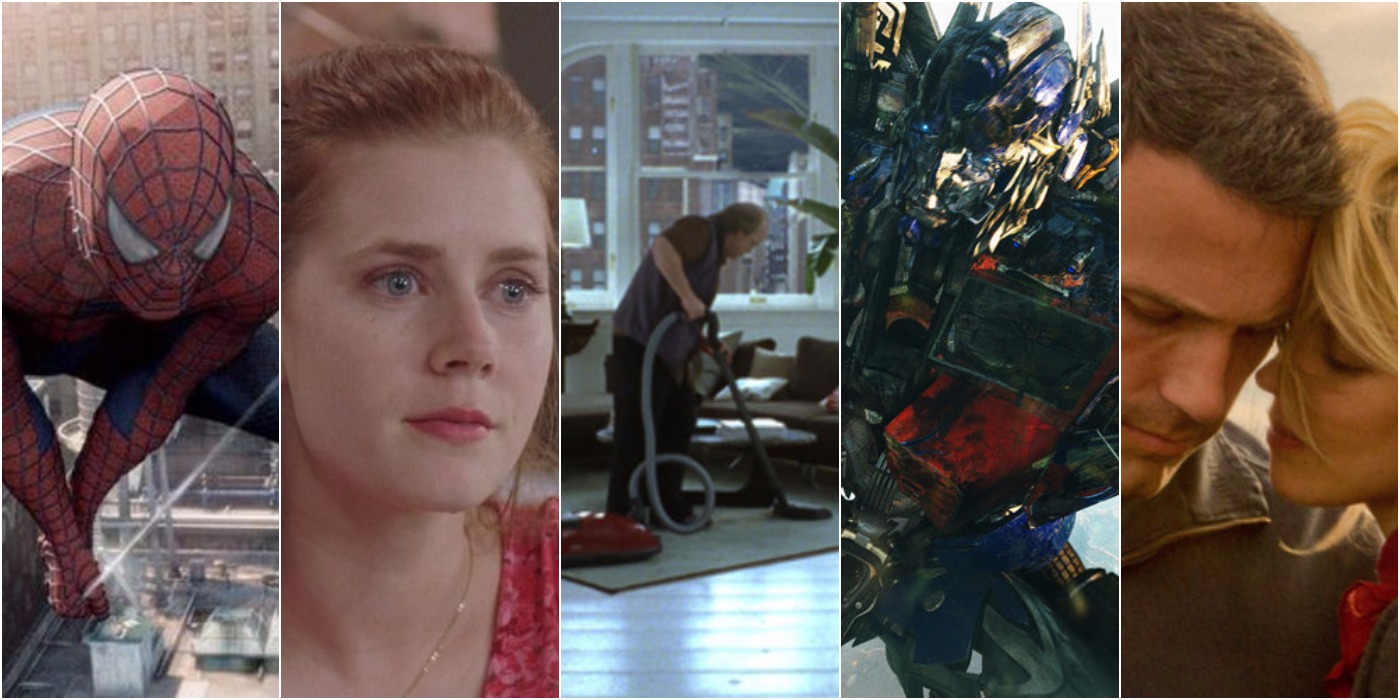With the fourth anniversary of his passing on the horizon, we asked Roger Ebert’s fans to pick their favorite reviews and pieces of writing from his entire career. We received dozens of responses, and picked through the reviews that were mentioned the most (or just the most interestingly) for the 13 reviews that now takeover the site, as we do every year on April 4th. What do these reviews have in common? What do they say about the way people remember Roger Ebert?
The first thing one notices is how much people’s favorites spanned the entirety of Roger’s career. His wildly influential piece on “Bonnie and Clyde” was mentioned alongside his final review for “To the Wonder,” and dozens of films in between. There is no “prime era” for Roger Ebert. Great works happened every year he was writing, and the fact that the reviews republished today come from multiple eras of filmmaking prove that fact. People had Favorite Rogers from all over his career.
What else do they say about what people remember about Roger? Reading through all 13, the first word that comes to mind is “confidence.” Whether he’s notoriously telling someone their movie sucks or lauding the new standard for an entire genre, these are strong opinions stated without an ounce of hesitation. Roger’s most memorable reviews often grabbed you immediately. Just look at some of the opening lines:
“Now this is what a superhero movie should be.”
“”Dark City” by Alex Proyas is a great visionary achievement, a film so original and exciting, it stirred my imagination like “Metropolis” and “2001: A Space Odyssey.””
“”Junebug” is a movie that understands, profoundly and with love and sadness, the world of small towns; it captures ways of talking and living I remember from my childhood, with the complexity and precision of great fiction.”
It’s not surprising that most of the choices were either 4-star or 1-star reviews. This is when Roger’s most confident voice often took hold, allowing him to praise something he loved or destroy something he hated. And it’s that passion that people remember so vividly, and why these reviews capture his life through his work.
There’s also a deeply personal aspect to several of these choices. Whether it’s talking to his grandkids in the Great Movies review of “E.T.,” grappling with life and death in “Synecdoche, NY” or the melancholy emotion of what would be his final review in “To the Wonder”. Fans of Roger’s often speak of feeling like they knew him through his work, and so it only makes sense that these reviews are some of their favorites.
How many people had their love of a movie grow after reading how Roger analyzed it? This is the final common theme in many of the #MyFavoriteRoger choices this year, as captured in his writing on films like “Dark City,” “Twelve Angry Men” and “My Dinner with Andre.” These are films that Roger understood so deeply that he enhanced the experience of viewing them more than just offering a typical critique.
Confidence, personal touch, and blinding insight. These are just three of the reasons we honor and celebrate Roger Ebert’s work today, and every day. Read the 13 reviews re-posted today (and linked below with a standout quote). You’ll not only see what it means to be a great film critic, but you’ll garner a greater appreciation of the breadth of Roger Ebert’s influence, impact, and memory.
“Spider-Man 2” (6/29/04)
It’s a real movie, full-blooded and smart, with qualities even for those who have no idea who Stan Lee is. It’s a superhero movie for people who don’t go to superhero movies, and for those who do, it’s the one they’ve been yearning for.
“Dick Tracy” (6/15/90)
This is a movie in which every frame contains some kind of artificial effect. An entire world has been built here, away from the daylight and the realism of ordinary city streets. And “Dick Tracy” also reflects the innocence of the comic strip that inspired it.
“E.T.” (9/14/97)
And then I thought, the fact that you knew that was a sign of how well Steven Spielberg made his movie. At 4, you are a little young to understand “point of view,” but you are old enough to react to one. For the whole movie, you’d been seeing almost everything through the eyes of E.T. or Elliott. By the last moments, you were identifying with E.T. And who did he miss the most? Who did he want to see standing in the spaceship door for him? His mommy.
“Dark City” (2/27/98)
This film contains ideas and true poignance, a story that has been thought out and has surprises right to the end. It’s romantic and exhilarating. Watching it, I realized the last dozen films I’d seen were about people standing around, talking to one another. “Dark City” has been created and imagined as a new visual place for us to inhabit. It adds treasure to our notions of what can be imagined.
“My Dinner with Andre” (6/13/99)
Someone asked me the other day if I could name a movie that was entirely devoid of clichés. I thought for a moment, and then answered, “My Dinner With Andre.” Now I have seen the movie again; a restored print is going into release around the country, and I am impressed once more by how wonderfully odd this movie is, how there is nothing else like it. It should be unwatchable, and yet those who love it return time and again, enchanted.
“The Apartment” (7/22/01)
The valuable element in Wilder is his adult sensibility; his characters can’t take flight with formula plots, because they are weighted down with the trials and responsibilities of working for a living. In many movies, the characters hardly even seem to have jobs, but in “The Apartment” they have to be reminded that they have anything else.
“Wet Hot American Summer” (8/31/01)
Hello muddah,
Hello fadduh–
Here I am at “Wet Hot American Summah.”
Wow I hate it
Something fierce–
Except the astrophysicist David Hyde Pierce.
“Twelve Angry Men” (9/29/02)
The movie plays like a textbook for directors interested in how lens choices affect mood. By gradually lowering his camera, Lumet illustrates another principle of composition: A higher camera tends to dominate, a lower camera tends to be dominated. As the film begins we look down on the characters, and the angle suggests they can be comprehended and mastered. By the end, they loom over us, and we feel overwhelmed by the force of their passion. Lumet uses closeups rarely, but effectively: One man in particular–Juror No. 9 (Joseph Sweeney, the oldest man on the jury)–is often seen in full-frame, because he has a way of cutting to the crucial point and stating the obvious after it has eluded the others.
“Junebug” (8/11/05)
“Junebug” is a great film because it is a true film. It humbles other films that claim to be about family secrets and eccentricities. It understands that families are complicated and their problems are not solved during a short visit, just in time for the film to end. Families and their problems go on and on, and they aren’t solved, they’re dealt with.
“The Dark Knight” (7/16/08)
“Batman” isn’t a comic book anymore. Christopher Nolan’s “The Dark Knight” is a haunted film that leaps beyond its origins and becomes an engrossing tragedy. It creates characters we come to care about. That’s because of the performances, because of the direction, because of the writing, and because of the superlative technical quality of the entire production. This film, and to a lesser degree “Iron Man,” redefine the possibilities of the “comic-book movie.”
“Synecdoche, New York” (11/5/08)
The subject of “Synecdoche, New York” is nothing less than human life and how it works. Using a neurotic theater director from upstate New York, it encompasses every life and how it copes and fails. Think about it a little and, my god, it’s about you. Whoever you are.
“Transformers: Revenge of the Fallen” (6/23/09)
If you want to save yourself the ticket price, go into the kitchen, cue up a male choir singing the music of hell, and get a kid to start banging pots and pans together. Then close your eyes and use your imagination.
“To the Wonder” (8/16/13)
“Well,” I asked myself, “why not?” Why must a film explain everything? Why must every motivation be spelled out? Aren’t many films fundamentally the same film, with only the specifics changed? Aren’t many of them telling the same story? Seeking perfection, we see what our dreams and hopes might look like. We realize they come as a gift through no power of our own, and if we lose them, isn’t that almost worse than never having had them in the first place?












